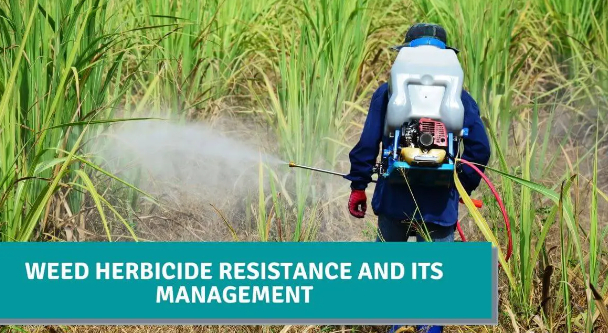May 16, 2025 | 10:46 GMT +7
May 16, 2025 | 10:46 GMT +7
Hotline: 0913.378.918
May 16, 2025 | 10:46 GMT +7
Hotline: 0913.378.918

The presence of weeds on farmland can result in significant loss of crop yields because weeds compete with field crops for essential resources.
Farmers face many hurdles when attempting to effectively manage yield-robbing, herbicide-resistant weeds. According to a recent survey of crop advisers, those barriers most often include economics, management complexity and supply constraints, along with the perception that a "silver bullet" will eventually solve the issue.
Katherine Dentzman, an assistant professor of rural sociology at Iowa State University, led the survey effort, which included responses from more than 350 certified crop advisers representing all 50 U.S. states. Overall, about 75% of advisers were moderately or very concerned about helping farmers manage herbicide resistance in the next five years.
"From my own research, growers know what the issues are, and they really want to use all of the best management practices available," she said. "In the survey, that's also what we heard from the crop advisers. They see a high level of awareness of the issue among growers, but they're also seeing growers who are struggling to manage resistance in an optimal way."
The advisers surveyed said one obstacle that makes the herbicide resistance conversation more difficult to broach is that farmers have grown weary of the message.
"There's definitely this fatigue around resistance management," said Dentzman, who began studying farmer perceptions of herbicide-resistant weeds roughly a decade ago. "They've heard it a million times, and it's just exhausting. In the survey, 22% of crop advisers said their customers are tired of hearing about it."
She noted that for many farmers, this fatigue has led to an almost fatalistic attitude where they feel that managing resistance is more complicated, more expensive and more time consuming than they can possibly handle, leading to the belief that a "silver bullet" is the only solution.
"About 18% of crop advisers surveyed said silver bullets were something their customers are constrained by," she said. "I have discovered that a lot of farmers will say that because they feel like there are no other options. They feel like there's going to need to be a silver bullet because they just don't see any other way it's going to happen."
Dentzman added that she's encountered some people who advise growers who feel that they need to "put the fear of God" in them by denouncing any notion of a future silver bullet and chastising them for not taking the issue more seriously.
"That kind of dialog just shuts people down," she said. "It reinforces that fatalistic attitude of 'There's nothing I can do. There's just going to need to be some miracle that comes along and saves the situation.'"
Conflicting information about how to manage herbicide-resistant weeds was also a concern for crop advisers. About 52% of those surveyed agreed or strongly agreed that herbicide retailers sometimes talked their growers out of following their recommendations. More than one-third agreed or strongly agreed that herbicide manufacturers or sales reps provided them with different information about resistance than they provided to customers. Two-thirds agreed or strongly agreed that once growers receive information from a different source, it can be hard to change their minds.
"All of this information comes together, and growers have to figure out who they trust," said Dentzman, also a member of the Herbicide Resistance Education Committee for the Weed Science Society of America. "Ninety-one percent of those advisers we surveyed thought the most effective thing to help their customers manage resistance was to put boots on the ground, get face to face and start building trusting relationships."
The advisers also recommended sharing neighbor successes in resistance management and encouraging stakeholder collaboration in community-wide resistance management initiatives. "It's really going to have to be a shared burden," Dentzman said.
Amongst the survey's key takeaways for needed changes from the certified crop advisers were that:
-- 82% agreed or strongly agreed that farmers are going to have to change their mindset to effectively manage pesticide resistance.
-- 73% agreed or strongly agreed that customers don't understand how slowly pesticide discovery, development and commercialization happens.
-- 75% agreed or strongly agreed that costs drove customer decisions about management options.
Dentzman also noted that of the 367 crop advisers who participated in the survey, only 3% had received Resistance Management Specialty certification. Those who had were much more concerned about all types of pesticide resistance.
"That says to me that getting trained in resistance management can be really impactful," she said. "It's maybe something that should be invested in a bit more."
(DTN)

(VAN) Fourth most important food crop in peril as Latin America and Caribbean suffer from slow-onset climate disaster.

(VAN) Shifting market dynamics and the noise around new legislation has propelled Trouw Nutrition’s research around early life nutrition in poultry. Today, it continues to be a key area of research.

(VAN) India is concerned about its food security and the livelihoods of its farmers if more US food imports are allowed.

(VAN) FAO's Director-General emphasises the need to work together to transform agrifood systems.

(VAN) Europe is facing its worst outbreak of foot-and-mouth since the start of the century.

(VAN) The central authorities, in early April, released a 10-year plan for rural vitalization.

(VAN) Viterra marked a significant milestone in its carbon measurement program in Argentina, called Ígaris, reaching 1 million soybean hectares measured.